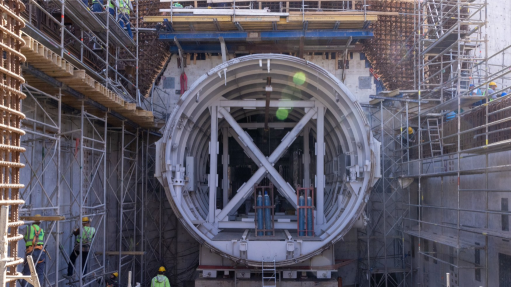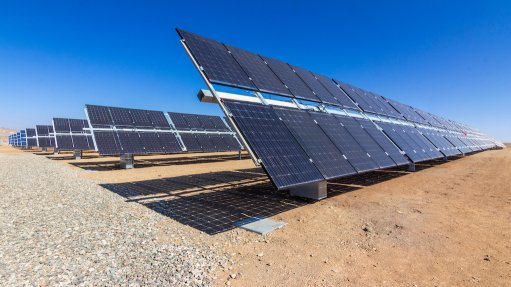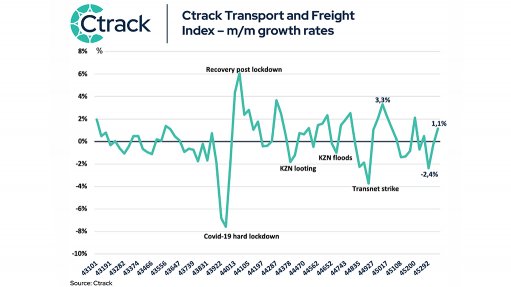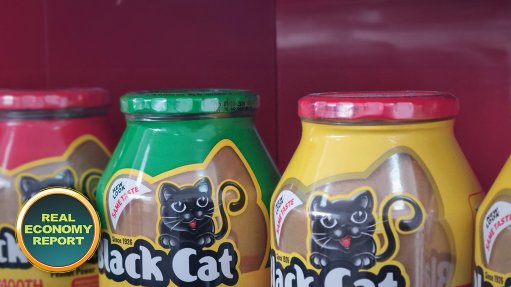Cova Advisory's Budget Analysis
This article has been supplied as a media statement and is not written by Creamer Media. It may be available only for a limited time on this website.
Government grants and tax incentives
The news regarding industrial incentives in the 2020 budget was not good especially for manufacturers. Due to the poor fiscal position of government, we did not anticipate that additional allocations would be made to investment incentives, however, the message delivered by the Minister on incentives to boost investment and growth was discouraging. In short, the message is that National Treasury considers incentives to be distortionary in nature as they confer benefits to a few while raising taxes for the rest. The 2020 Budget proposes the review of several tax incentives in 2020/21 to determine whether to amend or repeal them. These incentives will initially be amended by inserting sunset clauses, where none exist, indicating that they will lapse within two years. This will allow the review of these incentives to be completed before making a final decision on their future.
The major casualties of the Minister’s stance appear to be the programmes managed by the Department of Trade, Industry and Competition (“DTIC”). Although the section 12I incentive is in its sunset phase, the budget documents emphasized that this key DTIC incentive used to promote private sector investment is to be discontinued. New Special Economic Zones designated by the DTIC will also not be able to offer tax incentives to investors. This is bad news and government is sending the wrong message to potential investors in these SEZ’s. Spending in the DTIC grant incentive programmes is also to be trimmed at an average annual rate of 4 %, from R6 billion in 2019/20 to R5.3 billion in 2022/23.
We do however expect that any incentives designed will be aligned with new masterplans released by government.
The good news is that government intends to reprioritize to make additional resources available to job creation for the Youth and this may include recapitalizing the Jobs Fund. A new Innovation Fund is also to be capitalized with R1.2 billion and R6.5 billion is allocated for small business incentive programmes.
Jobs Fund
In the past, government had allocated a budget of R9 billion to National Treasury for the Jobs Fund. The private sector leveraged R14.1 billion as matched funding. The Jobs Fund approved 153 projects in total that created 118 867 new jobs.
Section 12I – Additional tax allowance
The section 12I incentive was implemented in 2010 with a budget for allowances of R20 billion. As of 31 March 2017, the incentive was fully committed, however, due to high demand, approvals will continue if and when savings are realised from completed projects and those that have been cancelled.
With no additional allowance to increase the original R20 billion budget there have been only 5 approvals in the 2019/2020 financial year end and this is due to budgetary constraints. It is disappointing that the window period for the incentive will not be extended any further beyond 31 March 2020. This is bad news to large manufacturers. We urge any clients with potentially qualifying projects to consider submitting applications urgently.
Research and Development (R&D) incentives
The revenue foregone from the Section 11D R&D tax incentives amounts to R150 million in 2017/18, whilst in 2016/17 it was R232 million and in 2015/16 it was R277 million. There is a worrying downward trend in terms of what corporates has been leveraging in terms of the R&D tax incentive over the past three years.
Sovereign Innovation Fund
In the white paper on Science, Technology and Innovation released on 30 March 2019, Department of Science and Innovation (“DSI”) noted that there is a specific need for increased commercialisation funding and that a Sovereign Innovation Fund will be formed to leverage co-investment by the public and private sectors to address gaps in technology commercialisation.
The fund will be designed to complement and enhance existing funding instruments, and to provide large-scale funding for the development and maturation of radical innovation and emerging industries. Within the public sector, agencies such as the Technology Innovation Agency (“TIA”), the Industrial Development Corporation (“IDC”) and the Development Bank of Southern Africa (“DBSA”), in cooperation with National Treasury, can contribute to this fund.
The Minister announced that R1.2 billion over the next three years will be capitalised towards this fund. This is welcome news as funding is generally a major constraint in the commercialization of new product ideas.
Special Economic Zones (SEZs)
Qualifying companies deriving taxable income from within the SEZ regime can benefit from a reduced corporate tax rate of 15 %, however, the government does not intend to extend the tax incentives for special economic zones beyond the six zones already approved by the Minister of Finance
The funding to build the SEZs is expected to increase from R1.1 billion in 2020 to R1.6 billion in 2023. There will be a greater emphasis on the development of townships and rural infrastructure and financial support to industrial parks is estimated to increase at an average annual rate of 2.8 %, from R122.9 million in 2020 to R133.4 million in 2023, to support the refurbishment of 27 industrial parks across South Africa.
Government has also proposed to amend sections 12R and 12S to include a sunset clause and to clearly stipulate an end date for these incentives. The promise of a reduced tax rate might not materialize for many investors.
There is no proposal to change the anti-avoidance rule of the 20% connected person activities. This anti-avoidance measure is too rigid, given that SEZ directed resources are likely to be connected to current local operations for them to be practically viable.
Section 12J
Government is concerned that S12J was being abused, with funds not being invested in deserving SME’s, and the cost to the fiscus growing quicker than anticipated. In 2019 government implemented a cap whereby individuals and trusts were only allowed to invest R2.5 million and corporates R5 million per annum which many industry players commented would affect legitimate VCCs unfairly.
In the current budget speech, it was reiterated that S12J was promulgated with a 30 June 2021 sunset clause where the effectiveness, impact and role of this incentive would be reviewed to ascertain whether it should be discontinued. It is encouraging that government has noted that changes made in the last two years have had potential unintended consequences that may affect legitimate VCCs and they have now proposed that the legislation be amended to address these unintended consequences. This would suggest that S12J may be here past 2021. The revenue foregone in 2017/18 was only R200 million, but we expect this to increase in future tax years.
Considering the government’s focus on structural reforms aimed at supporting competitiveness, investment and employment, by among others, by supporting small business, it is not unexpected that government is considering retaining this Venture Capital Incentive, which is vital to helping small businesses grow, but tightening the legislation to ensure that the regime is not abused.
Industrial Development Corporation (IDC)
The IDC’s disbursements are expected to increase by 28.3 %, from R16.6 billion in 2019/20 to R21.3 billion in 2022/23. The bulk of these disbursements are allocated to the IDC’s priority value chains (chemicals and plastics, clothing and textiles, steel and metals fabrication, furniture, sugar production, and poultry), as per the IDC’s master plans. Revenue is expected to increase at an annual average rate of 8.9 %, from R20.2 billion in 2019/20 to R26.1 billion 2022/23. The corporation’s revenue is mainly derived from interest income from loans, accounting for 65.7 % (R46 billion) of total revenue over the medium term. Other revenue streams include dividends from equity investments and income received from fees.
The IDC finances industrial development across Africa. Over the medium term, it will focus on financing and facilitating the adoption of emerging technologies and creating new industries. In 2015/16, the IDC set a five-year target to approve R23 billion for black industrialists by 2018/19 and it has approved R21.4 billion for such projects. This programme is expected to create about 22 600 jobs.
THE GREEN ECONOMY
Carbon tax
The Carbon Tax Act came into effect from 01 June 2019 and is expected to bring in R 1.75 billion of tax revenue for 7 months in 2020/21. Taking into account the increases (the rate increase for the full 12 months) it is expected to be R3.2 billion for next year. The electricity levy of R8 billion per annum is still budgeted for separately.
This will be complemented by more focused spending on climate change mitigation. The carbon tax rate will increase by 5.6 % for the 2020 calendar year. This increase includes an annual inflation rate of 3.6 % plus 2 percentage points in line with the Carbon Tax Act (2019). Therefore, the carbon tax rate will increase from R120 per tonne of carbon dioxide equivalent to a R127 per tonne of carbon dioxide equivalent in 2020.
Following an extensive consultation process, National Treasury published draft regulations for Trade Exposure and Performance allowances in December 2019. After taking into account the public comments received in January, the draft regulations will be revised and gazetted in March 2020. National Treasury will also publish a notice for the renewable energy premium credit in March 2020. In April 2020, The Department of Environment, Forestry and Fisheries will publish the Methodology and Accounting Framework for Greenhouse Gas Emissions Sequestration.
Carbon Tax on Petrol and Diesel
The rates of 7 cents and 8 cents per litre for petrol and diesel respectively will remain unchanged for the 2020 tax period.
Government will also publish a technical note outlining the methodological approach and administrative process for future carbon fuel levy rate adjustments by June 2020.
Taking into account the maximum tax-free allowances for fuel combustion and fugitive emissions, amendments are proposed to allow a limited recovery of the carbon tax costs for regulated fuels.
Broader Climate Change Policy
As part of government’s broader climate change mitigation policy, the National Treasury and the Department of Environment, Forestry and Fisheries will jointly consult stakeholders on future mitigation policies, including the integration of the carbon tax and mandatory carbon budgeting for the private sector to provide policy certainty and promote transparency.
Government will also continue to monitor developments under the Paris Agreement and their implications for the design and implementation of the domestic carbon offset scheme under the carbon tax.
Section 12L – energy efficiency incentive
Section 12L became effective in November 2013 with the aim to promote the efficient utilisation of energy, to safeguard the continued supply of energy, and to combat the adverse effects of greenhouse gas emissions on climate change. Amendments were made with effect from March 2015; the amendments included an increase in the tax allowance from 45c per kilowatt hour to 95c per kilowatt hour saved. To encourage additional and continuous investment in energy efficiency, government extended the Section 12L incentive to 31 December 2022 in the 2019 budget speech. No changes to the tax incentive were announced during the 2020 budget speech. The tax revenue foregone for this incentive peaked in 2016/17 at over R1billion but has reduced by over 50% in the following year.
Environmental taxes
Government is preparing to publish an environmental fiscal reform paper to explore the potential for new environmental taxes, and to reform existing tax instruments. Tax instruments that will be considered include:
1. The Fuel Levy: The levy has been increased by 25c this year, which is in line with inflation. The increase includes 16c for the general levy, and 9c for the RAF (Road Accident Fund).
Government will consider restructuring the general fuel levy to include a local air-pollution component.
-
Options to alleviate traffic congestion through road pricing charges. Options for an annual carbon dioxide tax on vehicles will also be considered - we expect this to result in significant increase in annual license renewal fees based on the age of your vehicle.
-
Reviewing inefficient fossil fuel subsidies such as the VAT zero rating for transport fuels.
-
The introduction of product taxes on electrical and electronic waste.
-
Reviewing the tax treatment of company cars to incentivise the use of more fuel-efficient vehicles. For passenger cars, government has increased emissions tax from R110 to R120 gCO2/km (9% increase), and R160gCO2/kg for double cabs. The threshold will be adjusted from 120 gCO2/km to 95gCO2/km for passenger vehicles to align with the Euro 6 emission standards. These amendments will take effect from 1 April 2020 and will be collected by SARS customs.
-
The plastic bag levy has been increased from 12 cents to 25 cents per bag (108% increase) effective 1 April 2020. National Treasury will consult on extending this levy to all single-use plastics including plastic straws, utensils and packaging. A review of the tax treatment of compostable bags will also be undertaken.
-
The incandescent light bulb levy has been increased from R8 to R10 (25% increase), effective from 1 April 2020, to encourage the uptake of more energy-efficient light bulbs.
The Green Fund
Over the medium term, the Green Fund is expected to receive additional allocations from the economic competitiveness and support package of R64.5 million in 2020/21. However, no allocation is expected to be made beyond 2020/21.
Energy efficiency and demand‐side management grant
To realise a target of 1.5 terawatt hours of energy savings over the medium term, allocations to the energy efficiency and demand‐side management grant are expected to increase from R227.1 million in 2019/20 to R243.3 million in 2022/23. This will enable municipalities to undertake initiatives to upgrade municipal infrastructure that is not energy efficient, such as replacing street and traffic lights with greener technology.
A Guarantee Fund from the Nationally Appropriated Mitigation Action Facility has been jointly established with funding from the German and United Kingdom governments to help private energy service companies obtain loans to implement the Energy Efficiency in Public Infrastructure and Building Programme.
The grant is allocated R691 million over the medium term. The fiscal consolidation reductions to this grant are equivalent to 9 % of the grant’s baseline in 2020/21, 9 % in 2021/22 and 8.9 % in 2022/23.
Independent Power Producers (IPPs)
Government has allocated R230 billion over a ten-year period in order to restructure the electricity sector and has committed to procure up to R200 billion in renewable energy from IPPs.
In terms of the Integrated Resource Plan (2010 to 2030), Government has committed to procuring 14 725 MW of power from renewable energy sources. Government has procured 6 422MW from renewable energy independent power producer projects and 3 976 MW from electricity generation projects up to 2019. The private sector investment in the programme amounts to R209.7 billion to date, of which R41.8 billion is from international investors and funders.
Efforts are under way to acquire additional electricity from existing independent power producers (IPPs). Government has committed to open Bid Window 5 and make it possible for municipalities in good financial standing to buy electricity from IPPs. The rapid decline in renewable energy prices will give new momentum to Bid Window 5. Bid Window 4 of the renewable energy programme is being accelerated.
CUSTOMS AND EXCISE
Excise duties on tobacco and alcohol will see an increase ranging between 4.4% - 7.5%. These are lower than expected and generally in line with inflation. Excise duty will be implemented on Heated Tobacco products at 75% of the rate of cigarettes. A tax will also be implemented on E-cigarettes from 2021.
Government will consult with affected industries on the introduction of export taxes on scrap metal, which could replace the current price preference system. Proposed export taxes will apply to ferrous metals at the rate of R1 000 per tonne, aluminium at R3 000 per tonne, red metals at R8 426 per tonne, and other waste and scrap metals at R1 000 per tonne. This reform aims to improve the availability of better- quality scrap metal at affordable prices for domestic foundries and mills. Consultation will begin today, to be concluded by the end of May 2020, for consideration in the annual tax bills.
National Treasury and DTIC are also considering proposals relating to Poultry. Proposed amendments to the Customs and Excise Act include:
-
Exchanging information with the Department of International Relations and Cooperation’s due to abuse of duty-free purchases by certain diplomats;
-
Providing for the publication of Tariff Determinations and rules therefore;
-
Liability for duty in respect of imported goods will be amended to provide for licensed removers of goods in bond to move containerised goods from container terminals before they are released. Liability of the master/pilot/carrier will cease on delivery of the goods to a licensed remover;
-
The diesel refund administration will be revised following further industry engagements in 2020. The African Continental Free Trade Agreement comes into effect on 1 July 2020. South Africa is one of 54 countries that signed up to an African free-trade area encompassing 1.2 billion people and more than US$3 trillion in output. African countries have agreed to cut tariffs to zero on 90 % of goods, which, alongside other trade-facilitating measures, is expected to increase intra-continental commerce by more than 50 % over four years, according to the United Nations Economic Commission for Africa.
Cova Advisory
Comments
Announcements
What's On
Subscribe to improve your user experience...
Option 1 (equivalent of R125 a month):
Receive a weekly copy of Creamer Media's Engineering News & Mining Weekly magazine
(print copy for those in South Africa and e-magazine for those outside of South Africa)
Receive daily email newsletters
Access to full search results
Access archive of magazine back copies
Access to Projects in Progress
Access to ONE Research Report of your choice in PDF format
Option 2 (equivalent of R375 a month):
All benefits from Option 1
PLUS
Access to Creamer Media's Research Channel Africa for ALL Research Reports, in PDF format, on various industrial and mining sectors
including Electricity; Water; Energy Transition; Hydrogen; Roads, Rail and Ports; Coal; Gold; Platinum; Battery Metals; etc.
Already a subscriber?
Forgotten your password?
Receive weekly copy of Creamer Media's Engineering News & Mining Weekly magazine (print copy for those in South Africa and e-magazine for those outside of South Africa)
➕
Recieve daily email newsletters
➕
Access to full search results
➕
Access archive of magazine back copies
➕
Access to Projects in Progress
➕
Access to ONE Research Report of your choice in PDF format
RESEARCH CHANNEL AFRICA
R4500 (equivalent of R375 a month)
SUBSCRIBEAll benefits from Option 1
➕
Access to Creamer Media's Research Channel Africa for ALL Research Reports on various industrial and mining sectors, in PDF format, including on:
Electricity
➕
Water
➕
Energy Transition
➕
Hydrogen
➕
Roads, Rail and Ports
➕
Coal
➕
Gold
➕
Platinum
➕
Battery Metals
➕
etc.
Receive all benefits from Option 1 or Option 2 delivered to numerous people at your company
➕
Multiple User names and Passwords for simultaneous log-ins
➕
Intranet integration access to all in your organisation


















